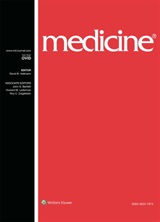 Even when a paper is obviously flawed, it can take years for journals to take action. Some never do. But it doesn’t have to be that way.
Even when a paper is obviously flawed, it can take years for journals to take action. Some never do. But it doesn’t have to be that way.
On April 27, a reader emailed the editors of two journals, noting that each had recently published a paper by the same group of authors that appeared strikingly similar.
Four days later, on May 1, a representative at Medicine, the journal that published the most recent version of the paper, wrote the reader back, saying the paper was going to be retracted.
Continue reading Hey journals, it is possible to quickly correct the record



